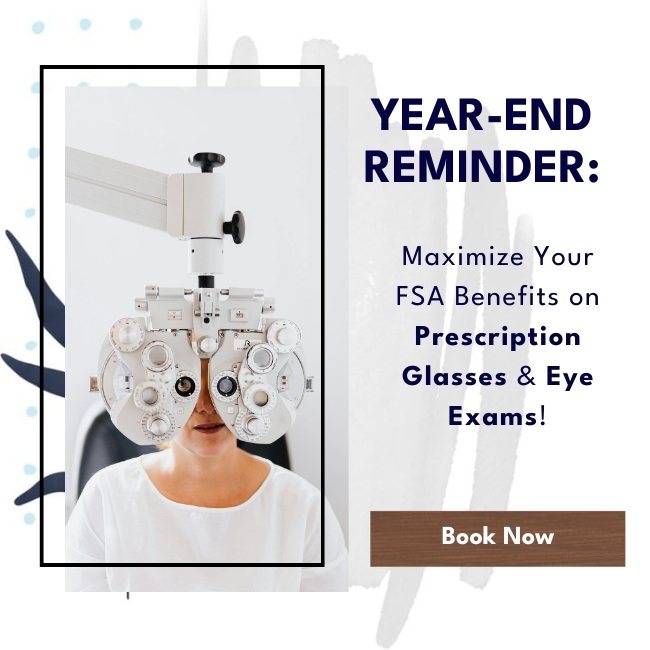Contact lenses offer freedom from glasses, but if you suffer from dry eyes, you may wonder if you can use them. Contacts can exacerbate dry eye symptoms, so it’s a fair question to ask. With good hygiene and awareness, you can wear contact lenses even with dry eyes. There are also specialty scleral lenses that improve moisture and comfort in the eye.
Debunking Dry Eye Myths
Let’s dispel some common misconceptions about dry eyes and contact lenses:
Myth 1: Contacts Cause Dry Eyes
Contact lenses don’t directly cause dry eyes. Instead, they can exacerbate pre-existing dryness if not properly managed. The root causes of dry eyes usually involve insufficient tear production, excessive tear evaporation, or an imbalance in tear composition.
Myth 2: Only Glasses Are Suitable for Dry Eyes
While glasses can be more comfortable for some, especially during a dry eye flare, contact lenses are not necessarily a no-go for those with dry eyes. It just requires more careful selection and management.
Myth 3: Dry Eyes are a Chronic Incurable Condition
Dry eyes can be treatable and managed effectively. With the right care, your symptoms can improve significantly, allowing for comfortable wear of contact lenses.
Contacts For Dry Eyes
Modern advancements in contact lens technology mean that there are now a variety of lenses designed to provide comfort and clarity.
Soft Lenses
Soft contact lenses can be comfortable for those with dry eyes. They’re made with water-containing materials that retain moisture, which can be beneficial for comfort throughout the day. They don’t allow as much oxygen to reach the cornea as silicone hydrogel lenses might.
Silicone Hydrogel Lenses
Silicone hydrogel lenses are often recommended for those with dry eyes. They allow significantly more oxygen to reach the cornea, which can help reduce symptoms of dryness.
Daily Disposable Lenses
For convenience and hygiene, daily disposable lenses could be the best option. By wearing a fresh pair every day, you ensure that no protein deposits or dirt can accumulate, causing discomfort.
Scleral Lenses
Scleral lenses are specialized contact lenses that are often used as a treatment option for individuals with dry eye syndrome. Unlike traditional contact lenses that rest on the cornea, scleral lenses vault over the cornea and rest on the white part of the eye called the sclera. Hence the name. They create a fluid-filled chamber between the material of the lens and the cornea of the eye. This can combat the the evaporation issue causing loss of tear film, and is gentler on the wearer than conventional lenses.
Managing Dry Eyes While Wearing Contacts
Wearing contact lenses with dry eyes is a delicate balance. The key is to be proactive with your eye health and to be diligent in maintaining a moist and comfortable eye environment.
Lubricating Eye Drops
Over-the-counter lubricating eye drops can be a lifesaver for contact wearers with dry eyes. These drops add an extra layer of moisture to your eyes, reducing friction and ensuring that your lenses remain comfortable throughout the day.
Blinking Exercises
Frequent, deliberate blinking can help to spread your tears more evenly, keeping your eyes moist and your vision clear. This is especially important for those who spend long hours looking at screens or in environments with air conditioning.
Proper Hygiene
Keeping your contacts clean and handling them with well-washed hands is crucial for preventing infections. Any foreign debris or bacterial buildup on your lenses will only further irritate dry eyes.
Who Shouldn’t Wear Contacts
While many people with dry eyes can successfully wear contacts, there are some cases where it is not advisable. Your optometrist can help you determine the right choice.
- Severe dry eye issues may make contact lens wear a challenge or contraindicated.
- Some eye conditions that damage the surface of the eye could worsen with contact lens use.
- In rare cases, individuals may be allergic to contact lens materials.
Treating Dry Eyes Beyond Contact Lenses
If you have dry eyes, treating the underlying issue is essential. Here are a few techniques to ensure your eyes are as comfortable as possible:
Environmental Changes
Try to avoid dry environments, or where there’s a lot of air blowing on your face. Humidifiers might be beneficial in dry conditions.
Diet and Supplements
Omega-3 fatty acids have anti-inflammatory properties and can help maintain healthy tear production. You can get these through diet or supplements.
Prescription Medications
Your eye doctor may recommend prescription eye drops or other medications to treat your dry eyes more effectively.
Contact Lenses with Lubricating Technologies
Some contact lenses now come with built-in moisturizing agents that can be beneficial for dry eye sufferers. These technologies release moisture when you need it most, ensuring that your eyes stay comfortable.
The Role of Your Eye Doctor
Regular visits to your eye doctor are important for everyone. Your optometrist can perform tests to determine the severity and underlying cause of your dry eyes and can provide you with personalized recommendations for contact lens wear.
Finding Contacts For Your Dry Eyes?
Dry eyes don’t necessarily mean the end of contact lens wear. With proper care, the right lens choice, and management techniques, you can enjoy the convenience and ease of wearing contacts without discomfort.
EyeDeal EyeCare is here to help you see the world clearly and comfortably. If you would like to find contact lenses that won’t aggravate your dry eyes, schedule an appointment today at EyeDeal EyeCare. Our dedicated team is committed to finding solutions tailored to your specific needs.




